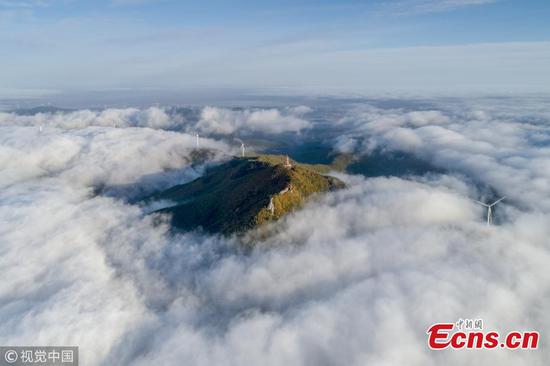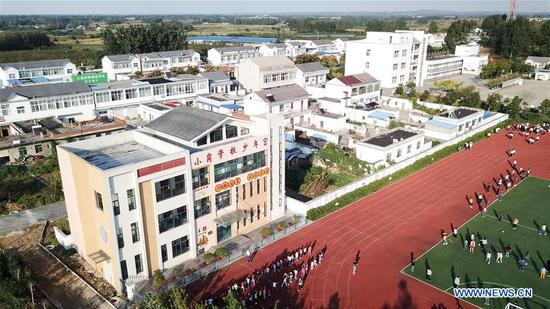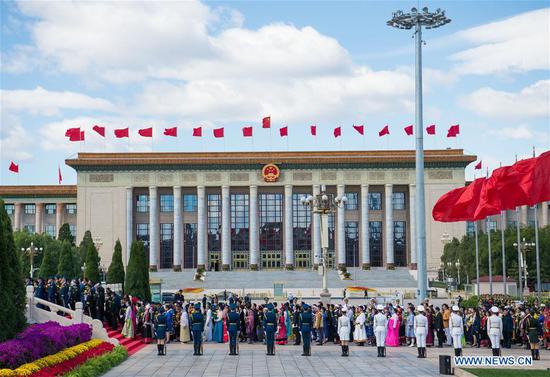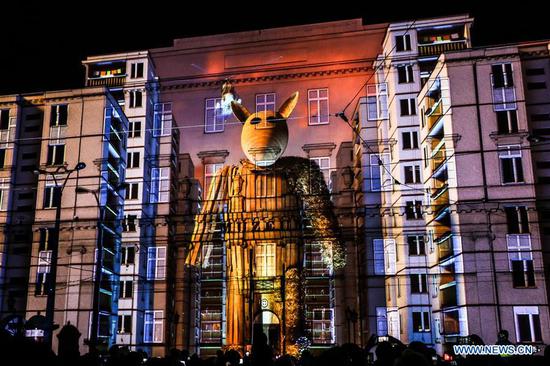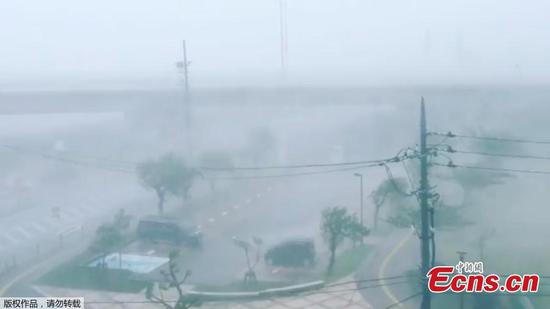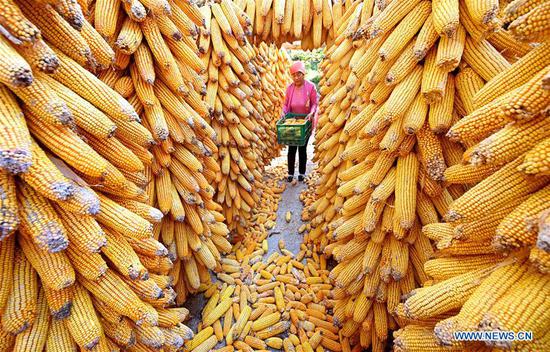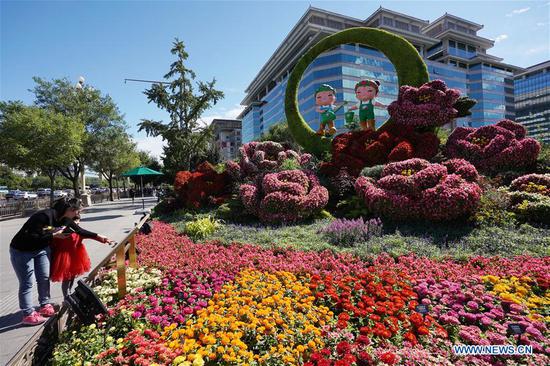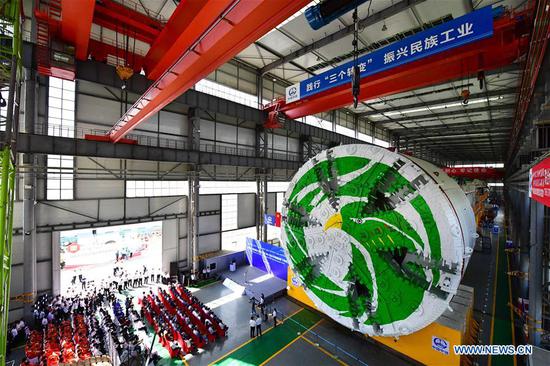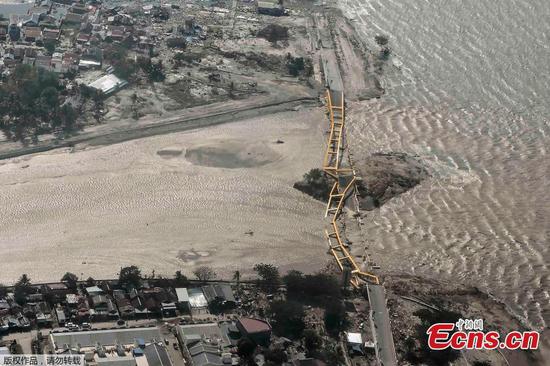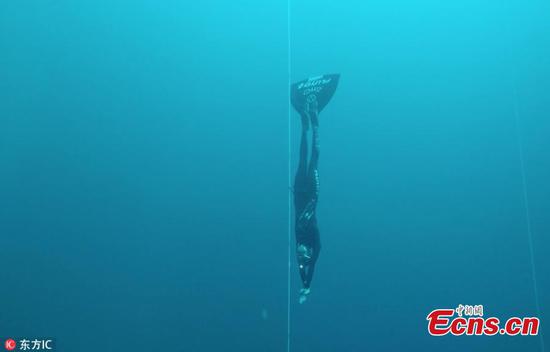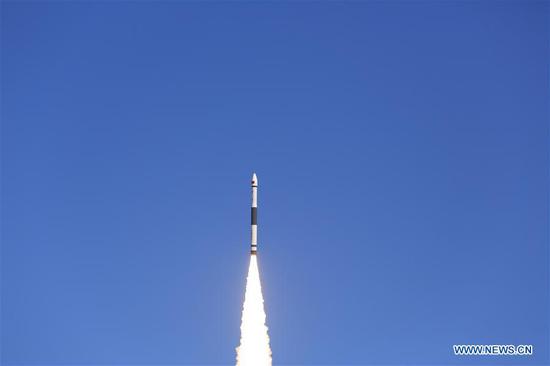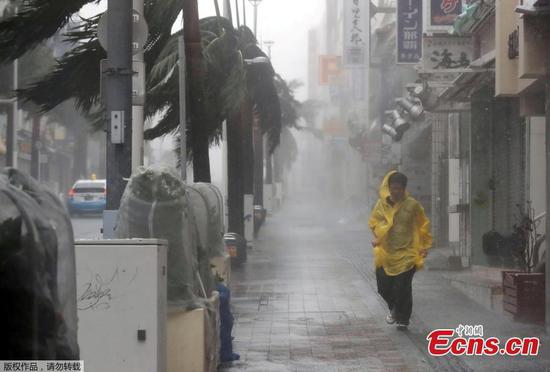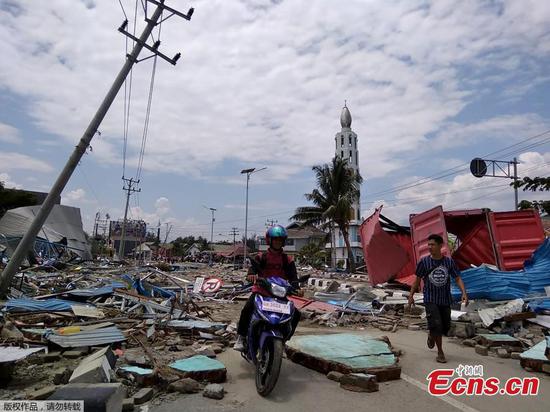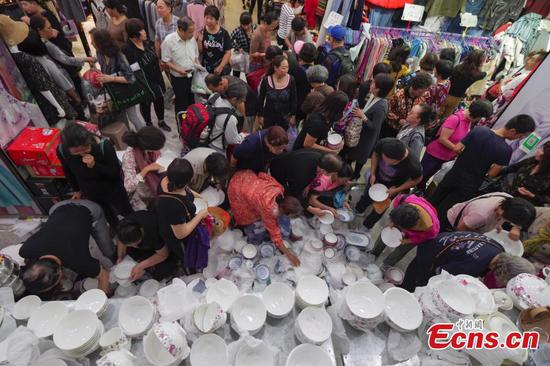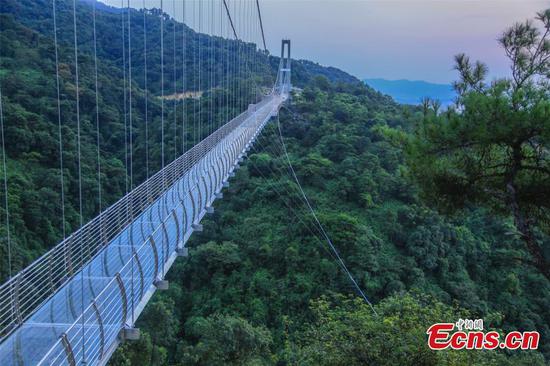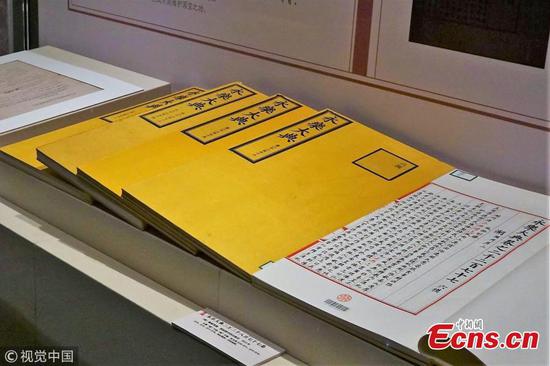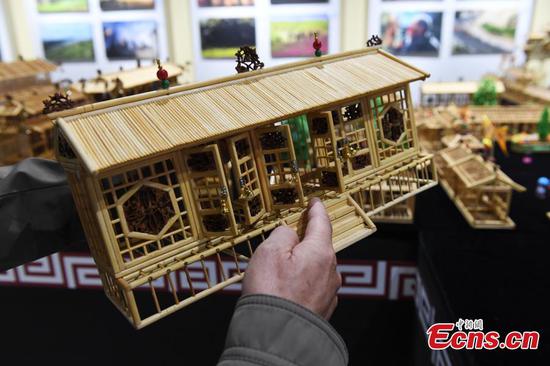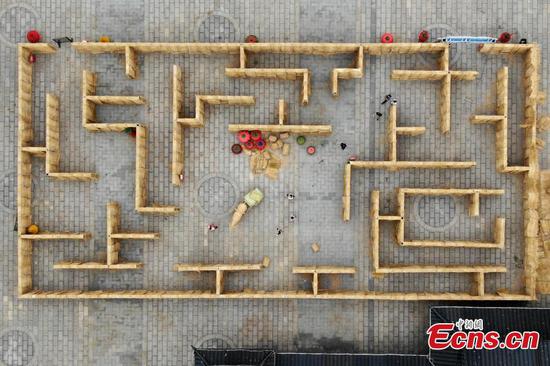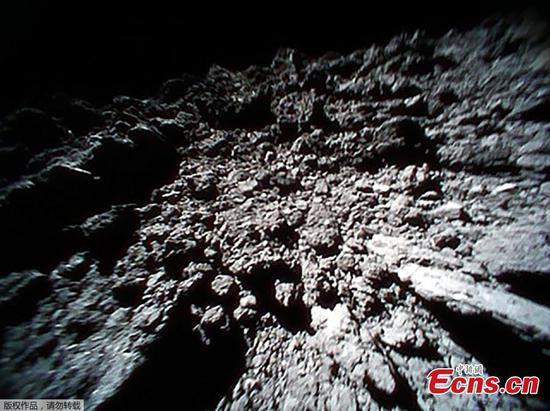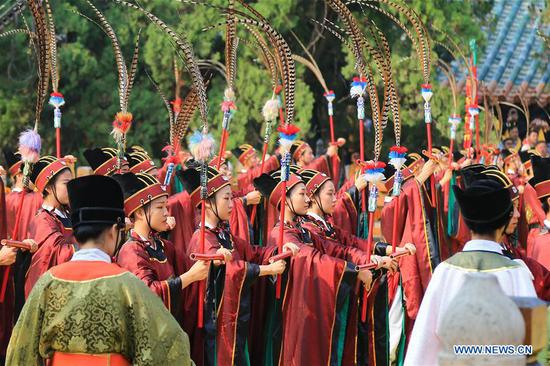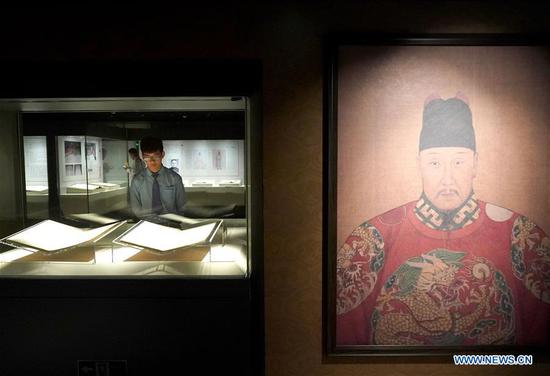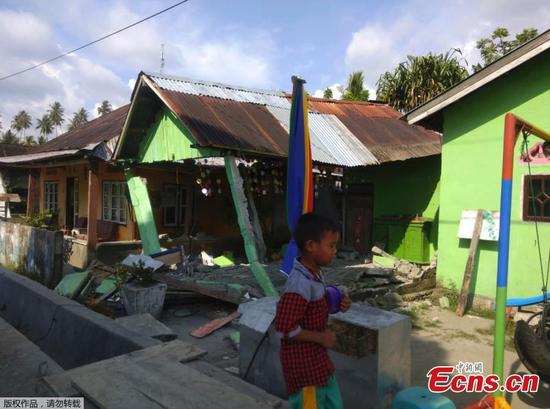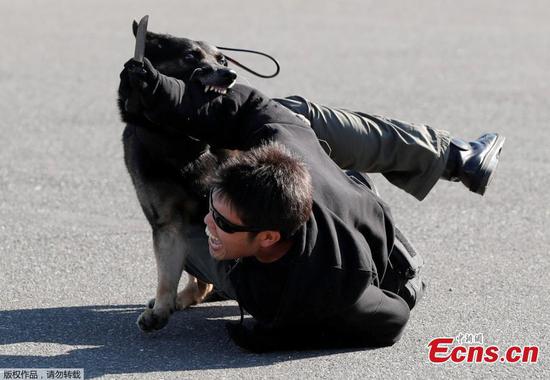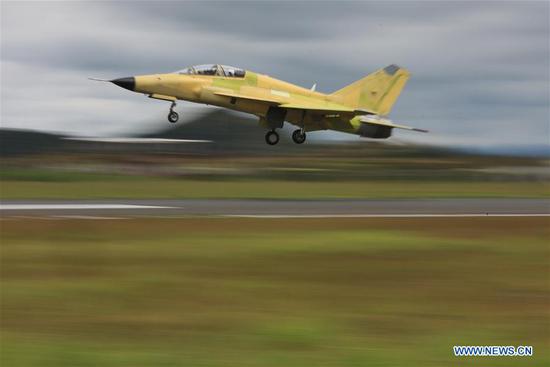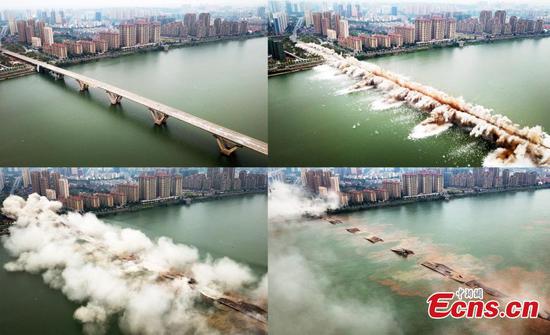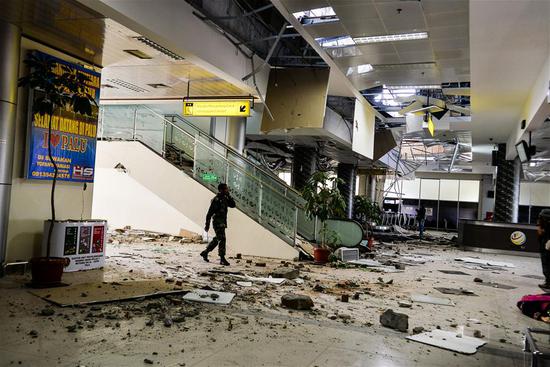
Photo taken on Sept. 30, 2018 shows the view inside a building in Palu in Central Sulawesi province, Indonesia. Death toll from Indonesia's strong quakes and tsunami in Central Sulawesi province climbed to 832 on Sunday, as lack of rescuers and large stricken areas remaining hard to access hampered search and rescue efforts, a government official said here. (Xinhua/Iqbal Lubis)
Death toll from Indonesia's strong quakes and tsunami in Central Sulawesi province soared to 832 on Sunday, as lack of rescuers and large stricken areas remaining hard to access hampered search and rescue efforts, a government official said.
Vice President Jusuf Kalla said the toll could rise into the thousands as the death figure now came mainly from the capital city of Palu while the situation of the other two densely populated districts remained unclear as they were cut off from communications and help.
Among the death figures, 821 were recorded in Palu, the provincial capital, and the rest in Donggala district, while figures in two other affected districts, Parigi Moutong and North Mamuju, were not included, which means the total death toll was in fact higher, spokesman of the national disaster management agency Sutopo Purwo Nugroho said.
"Besides, there are still many bodies who have not been identified. The victims remain under rubble or wreckaged buildings, their number is still a lot. Many hit-areas have not been reached out by a joint rescue team. So that the number of victims is likely to increase," Sutopo told a press conference at his office.
The catastrophe has also seriously injured 540 people and forced 16,732 people to flee homes, the spokesman said.
"Most of the victims were hit by rubble or falling of blocks of concrete, and waves of tsunami," he noted.
Strong and shallow under-earth quakes of 6.0-, 7.4- and 6.1-magnitude that triggered a tsunami have devastated the province with the hardest-hit area in Palu, the provincial capital and Donggala district. The tsunami with height of 0.5 to 3 meters devastated coastal areas near Talisa beach in Palu city and Donggala district, the meteorology and geophysics agency said.
A mass funeral was held Sunday for those who lost their lives, Sutopo said.
Sutopo said the search and rescue operation had been hampered by electricity outage, cut-off communications and limited number of heavy machinery equipment.
"The number of machinery devices operating is too little compared with the scale of the damage, the number is not sufficient. Sending the heavy machinery equipment from outside to the province is also facing obstacles. The affected-territory is large," he said.
Communications were only in service in Palu city, the spokesman said, adding that due to the communications cut-off in the other three districts of Donggala, Parigi Moutong and North Mamuju, the situation of the catastrophe in these areas could not be known intensively.
"Accordingly, we have not precisely found out the impacts (of the catastrophe) sustained by the districts, and how are the emergency relief measures there," he said.
President Joko Widodo visited a housing complex in Palu flattened in the quake and called for patience.
"I know there are many problems that need to be solved in a short time, including communications," he said, adding the ruins would be rebuilt.
The focus of the search and rescue operation now is to retrieve victims from under the rubble of Roa Roa hotel in Palu, which has been leveled, and about 60 people were estimated to be inside the building when the quake hit, said Sutopo.
The heads of the three districts have been encouraged to declare a emergency status, the spokesman said.
Search efforts were also being undertaken in the ruins of Ramayana Hotel, Dunia Baru Restaurant and wreckage of houses and buildings in coastal areas near Talisa beach which was hit by the tsunami, he said.
Meanwhile, a total of 61 foreign nationals were affected during the disasters, including 21 Chinese citizens who have been secured safely along with those from Singapore, Belgium, Germany and Vietnam, said Sutopo.
But the fate of one South Korean citizen, one Malaysian and three French citizens remained unknown, he said, adding the South Korean might have been trapped in Roa Roa Hotel.









